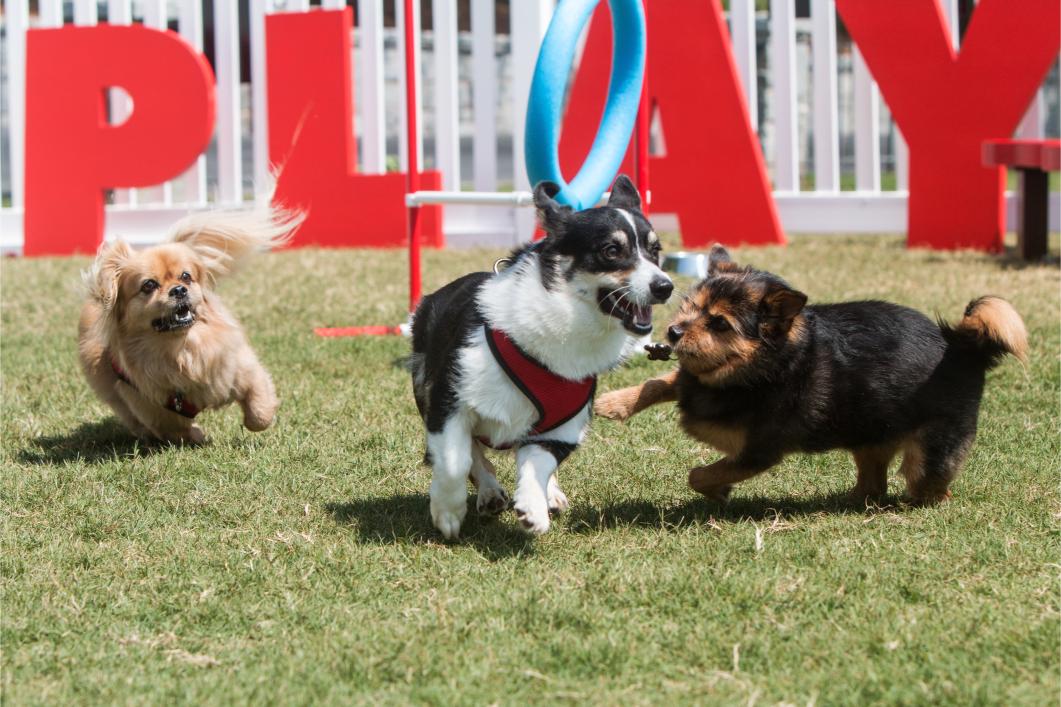Why Socializing Your Pet Is Important

Every pet deserves a life filled with fun, friends, and fabulous new experiences! At MarketPlace Veterinary Hospital, we’re all about helping your furry friend embrace the world with confidence and curiosity. Socialization is key to making that happen. Whether you’ve got a bouncy puppy eager to meet everyone or a cautious cat who prefers a slow approach, introducing new people, pets, and places can make all the difference in their happiness and ease with new situations.
The Importance of Pet Socialization
Socializing your pet goes beyond just meeting other pets and people—it’s about exposing your pet to a variety of environments, sounds, and experiences. For dogs, socializing helps reduce anxiety and promotes calm, confident behavior. Socialization can help cats feel more secure, even in a world that doesn’t always feel “cat-friendly.” The importance of socializing dogs, cats, and all pets is foundational to their well-being and happiness.
Socialization Benefits for Pets
Socializing your pet comes with many benefits that impact their mental and physical health. Here are some of the top perks:
- Reduced anxiety and fear: Pets that are socialized early learn to feel comfortable in new situations, reducing the likelihood of fear-based reactions.
- Improved behavior: A well-socialized pet is more likely to adapt to new environments and behave politely around other animals and people.
- Enhanced pet-owner bond: Socializing helps pets develop trust, not only with other animals but with you, their primary caregiver.
These benefits help build confidence and trust, allowing your pet to enjoy life without unnecessary stress.
The Importance of Socializing Dogs & Puppies
When it comes to socializing puppies, timing is everything. Puppies are naturally more adaptable and curious in the early months, making this the perfect window to introduce them to a variety of experiences. Here are some ways to socialize puppies effectively:
- Introduce them to new people: Invite friends or family members over so your puppy can meet people of different ages and appearances.
- Expose them to various environments: Walking around the neighborhood, visiting pet-friendly stores, and going to friends’ houses provide new sights and smells.
- Practice meeting other dogs: Arrange playdates with well-behaved, vaccinated dogs to help your puppy learn how to interact politely.
Older dogs benefit from socialization, too! It’s never too late to help your dog become more comfortable with the world around them. Use treats, praise, and a gradual approach to help build their confidence.
Socializing Cats: Yes, They Need It Too!
Cats might be more independent than dogs but still need socialization to help them feel safe and secure. Socializing cats involves familiarizing them with different environments, people, and sounds to prevent stress in new situations. Here are a few tips:
- Introduce positive experiences early: Let your cat explore different rooms, meet new people, and hear common household sounds in a safe, reassuring way.
- Provide hiding spots: Cats feel more comfortable when they have places to retreat. When introducing them to new experiences, ensure they have an escape route.
- Encourage interaction with rewards: Use treats, gentle petting, and praise to encourage your cat to explore and interact.
While cats may not need the same level of socialization as dogs, a well-socialized cat is less likely to hide under the bed or feel stressed when guests visit.
How To Socialize Pets Safely
While socialization is essential for a happy, well-behaved pet, it’s important to approach it safely and at a pace your furry friend is comfortable with. Here are some general guidelines for successful pet socialization:
- Start slow: Introduce one new experience at a time so your pet isn’t overwhelmed.
- Use positive reinforcement: Reward your pet with treats, praise, or a favorite toy to reinforce good experiences.
- Watch their body language: Signs of fear, such as tucked tails, flattened ears, or raised fur, mean it’s time to give your pet a break.
A gradual, positive approach to socialization helps build trust and ensures your pet associates new experiences with positive outcomes.
Dogs and Cat Socialization Tips
Here are some additional tips to help you on your journey of socializing dogs and cats:
For Dogs:
- Schedule playdates with friends’ pets to help them learn social cues.
- Visit dog-friendly cafes, parks, or shops to get them used to public spaces.
- Expose them to different surfaces, such as grass, sand, and pavement, for a well-rounded experience.
For Cats:
- Invite visitors over for short, calm visits to introduce your cat to new faces.
- Play gentle music or household sounds to help them get used to noise.
- Use carriers for small trips around the house or yard to familiarize them with travel.
Socialization is a process, and every pet moves at their own pace. By investing time and patience, you’re helping create a more relaxed, confident companion.
If you have any questions about socializing your pet or behavior issues, don’t hesitate to contact the veterinarians and staff at MarketPlace Veterinary Hospital. Let’s help your pet enjoy a life filled with positive experiences and happy connections!

